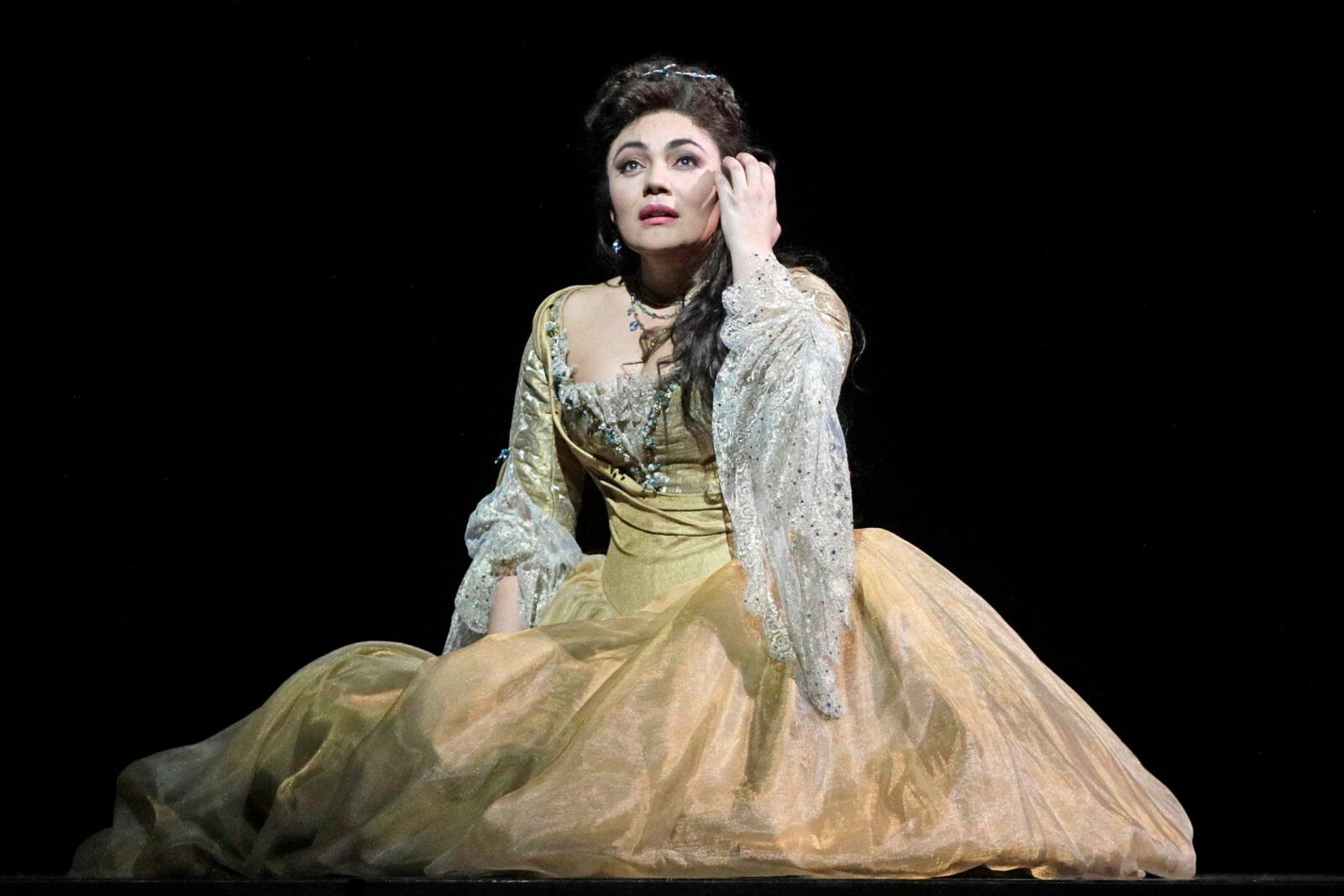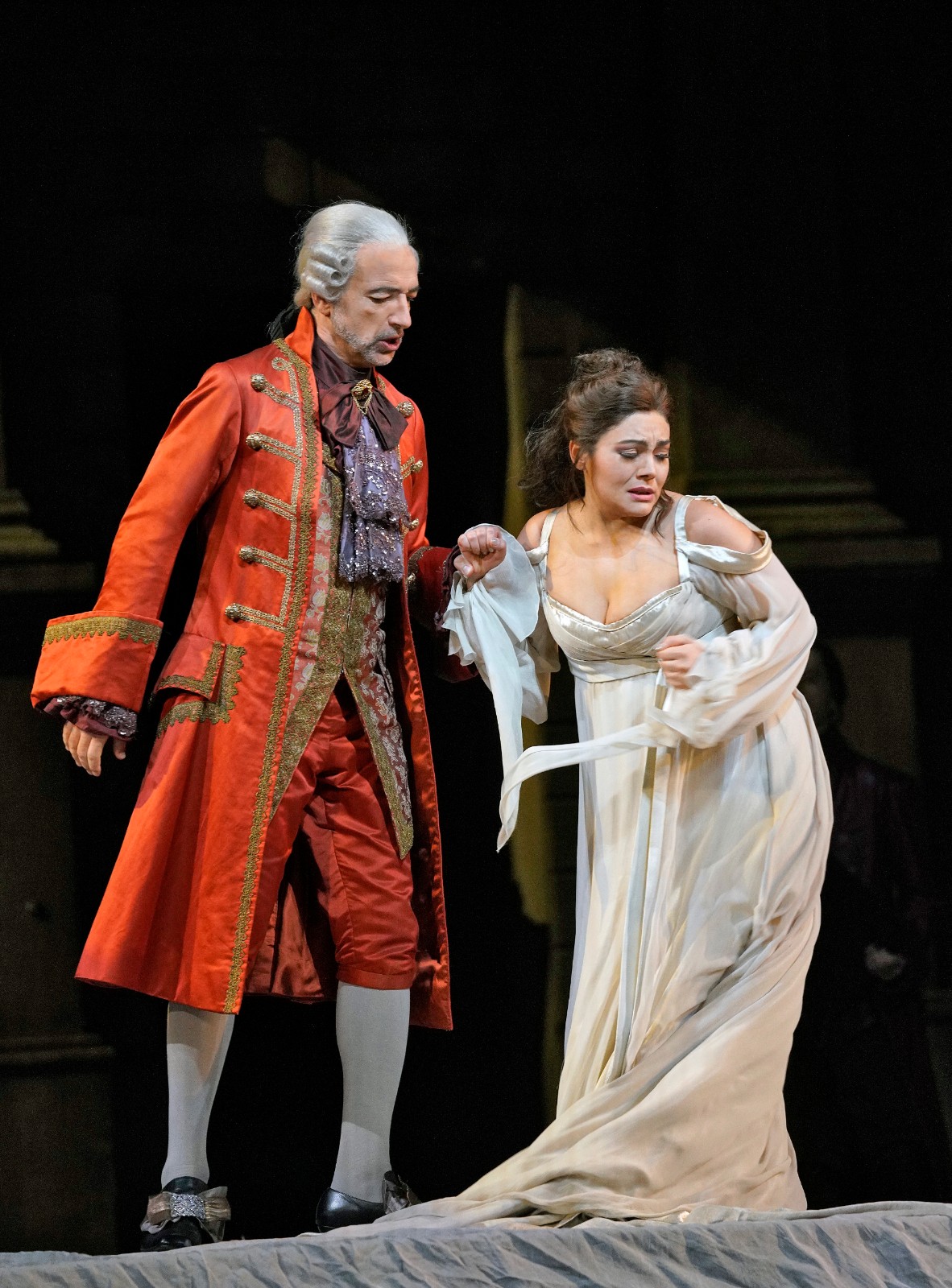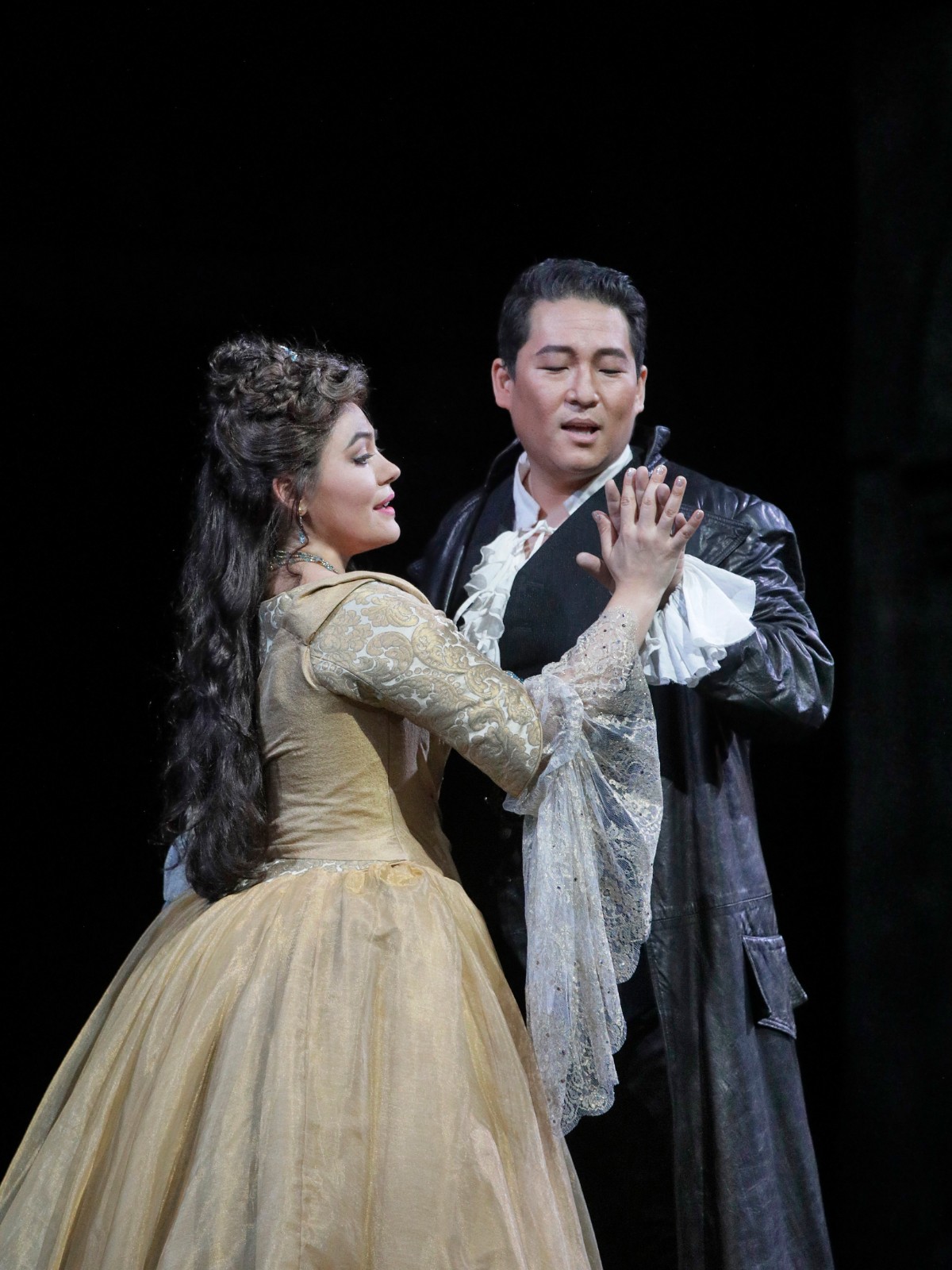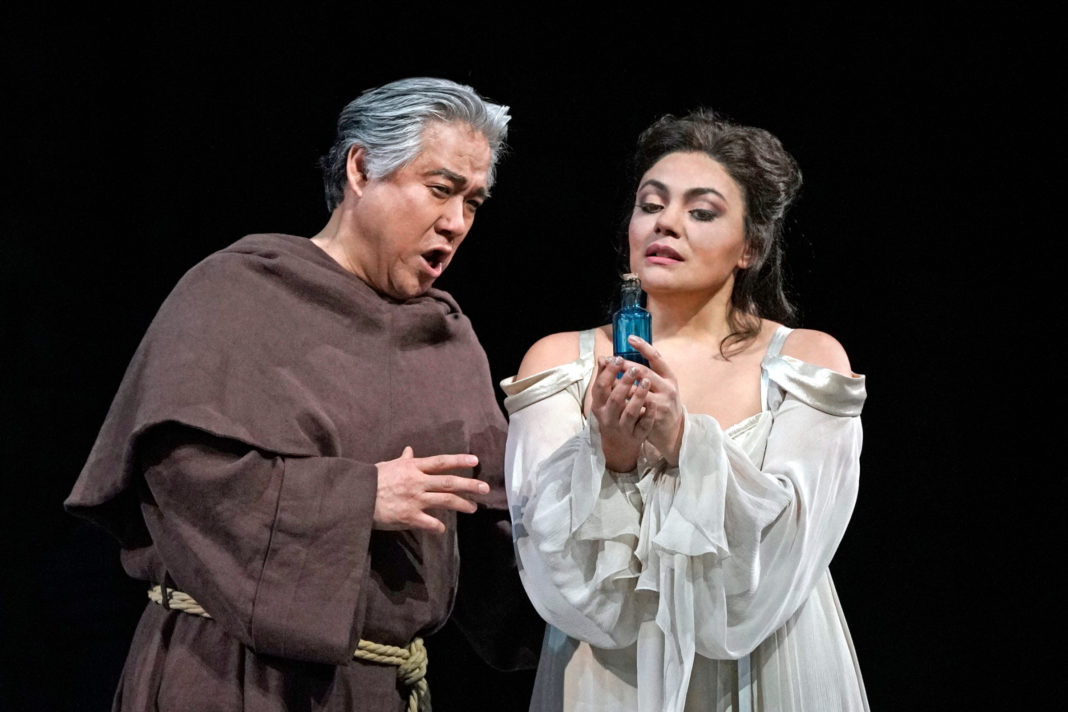The distinction of season première tonight belonged to Bartlett Sher’s production of Roméo et Juliette. Apart from his once symbolic prop, the oversize sheet, which by any other name, will have its uses – canopy, shroud, bed sheet, faux wedding dress, and shroud again, Sher’s primary choice is to shift the action from the Renaissance to 18th-century Verona, a world of decadent masked balls, court mantuas, Gainsborough hats and neoclassical architecture. That which separates the two eras is important: the end of ancien régime boasts a less innocent flamboyance, a certain over-ripe decadence. The Montagues and Capulets party, fight (and romance) on the edge of a volcano, as it were.

This opera, which is a conventional enough example of the French Romantic canon, must rest, however, on the principals; its four cornerstones are their duets, representing, in the compact order of Gounod’s storytelling, romance, wedding, bedding and death. What soloists are not under the particular scrutiny consequent on such extraordinary literary fame? How do they match up to the archetypes of the star-crossed lovers we long to see? Andrea Shin stood in (nobly) for Charles Castronovo who himself would have been a stand in for Bryan Hymel as Roméo, and deserves particular credit for making his unexpected Met debut with great conviction and passion. Perhaps because of the last minute change, the chemistry between him and Ailyn Pérez’s Juliette was not such as to overwhelm one with a sense of transcendental passion.

Love between the two became more plausible the less likely it was they would survive, and most plausible in death, framed in the libretto as a mutual act (unlike Shakespeare, Gounod cannot resist bringing them together alive and singing for one last time – even if it gives rise to the rather terrible melodramatic line, redolent of the 19th-century at its most obvious: “Alas, thinking you were dead, I drank poison”.) Juliet’s insistence that Romeo guide her hand as she knives her bosom makes the act a strikingly decisive one.

Mercutio (Joshua Hopkins) was good fun, making up for Shin’s solidity, tossing off his Queen Mab ballad with devil-may-care nonchalance. Frère Laurent (Kwangchul Youn) had the ballast of voice required for one in charge of the souls of impetuous youth. Choruses are somewhat static in this opera, but the mourning scene over Tybalt’s death was moving. The orchestra under baton of Plácido Domingo caught the poetry and pathos of the score.

























